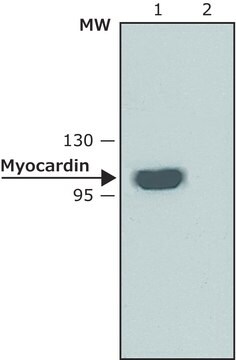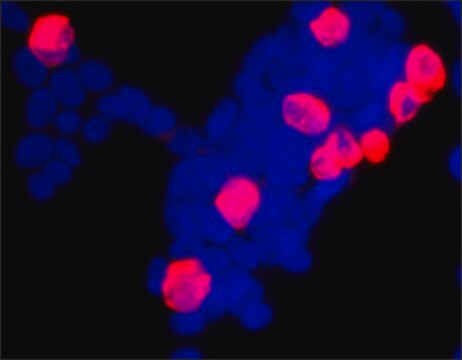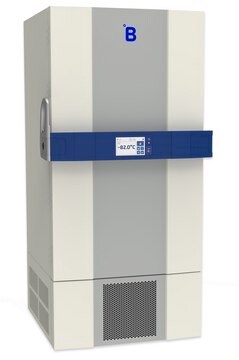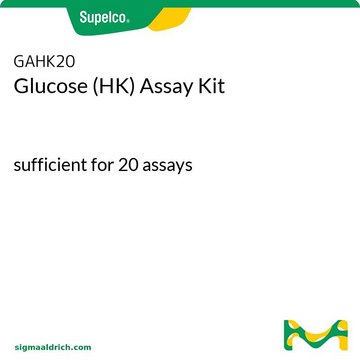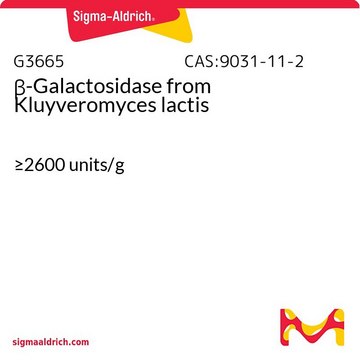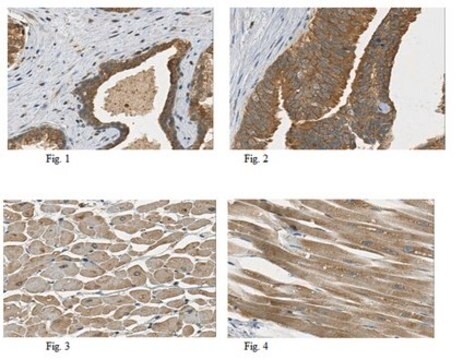M8948
Monoclonal Anti-Myocardin antibody produced in mouse
~2.0 mg/mL, clone MCR54, purified immunoglobulin
Sinónimos:
Anti-MYCD, Anti-MYOCD
About This Item
Productos recomendados
biological source
mouse
conjugate
unconjugated
antibody form
purified immunoglobulin
antibody product type
primary antibodies
clone
MCR54, monoclonal
form
buffered aqueous solution
mol wt
antigen ~150 kDa
species reactivity
human
packaging
antibody small pack of 25 μL
concentration
~2.0 mg/mL
technique(s)
western blot: 2.5-5 μg/mL using HEK-293T cells overexpressing myocardin
isotype
IgG2b
UniProt accession no.
shipped in
dry ice
storage temp.
−20°C
target post-translational modification
unmodified
Gene Information
human ... MYOCD(93649)
General description
Application
Biochem/physiol Actions
Physical form
Disclaimer
¿No encuentra el producto adecuado?
Pruebe nuestro Herramienta de selección de productos.
Storage Class
12 - Non Combustible Liquids
wgk_germany
WGK 2
Elija entre una de las versiones más recientes:
Certificados de análisis (COA)
¿No ve la versión correcta?
Si necesita una versión concreta, puede buscar un certificado específico por el número de lote.
¿Ya tiene este producto?
Encuentre la documentación para los productos que ha comprado recientemente en la Biblioteca de documentos.
Nuestro equipo de científicos tiene experiencia en todas las áreas de investigación: Ciencias de la vida, Ciencia de los materiales, Síntesis química, Cromatografía, Analítica y muchas otras.
Póngase en contacto con el Servicio técnico